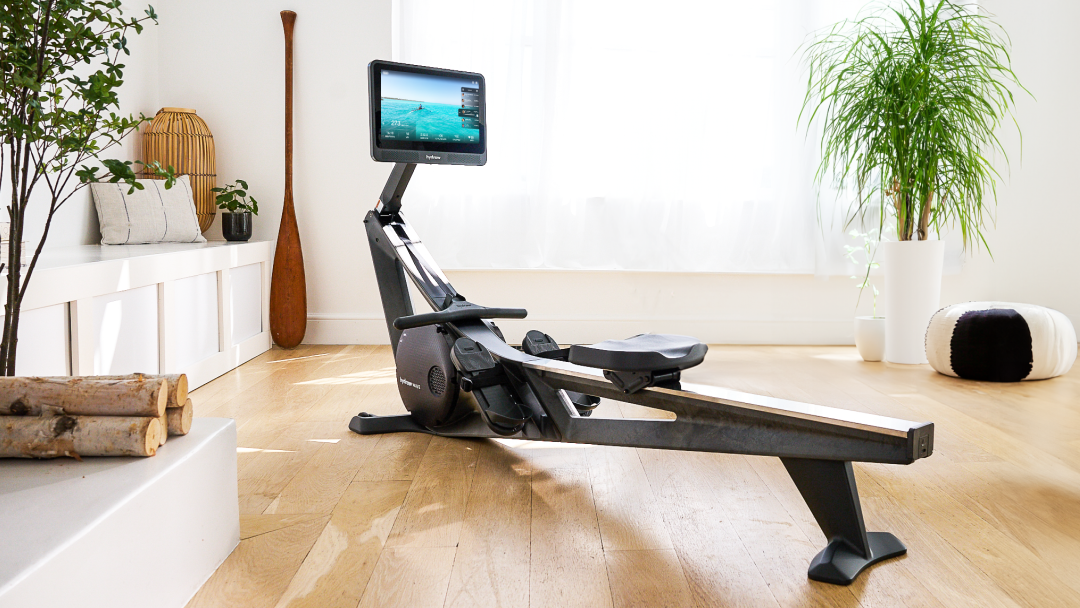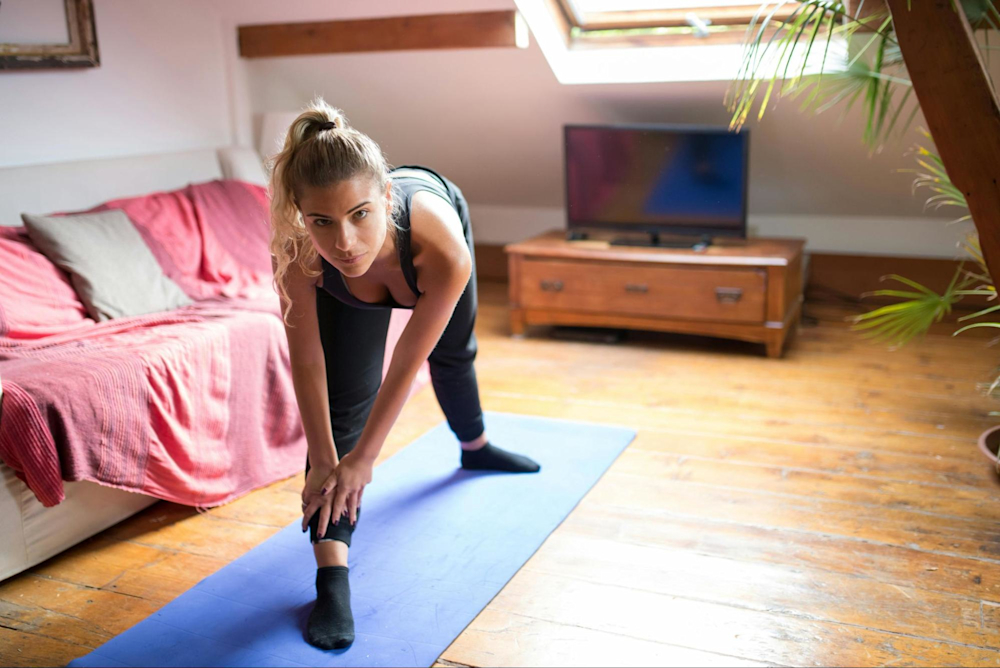What Is Habit Stacking, and How Can It Help You Meet Your Fitness Goals?

Sticking to a fitness routine is challenging—but what if you could make it easier by leveraging the routines you already have? That’s the idea behind habit stacking, a concept discussed by behavior scientist BJ Fogg in a recent Hydrow University presentation.
In this blog, we’ll dive into Fogg’s insights and explore how habit stacking can help you stay on track with your fitness goals, whether you’re just starting out or are a seasoned athlete. Let's discuss:
Let's dive in!
What is habit stacking?
Habit stacking is about pairing a habit with an existing one. Instead of creating a new routine from scratch, you can take advantage of the momentum of habits already ingrained in your life.
According to Fogg, when you anchor a new habit to something you do regularly, your brain is more likely to remember and reinforce that habit. For instance, you might connect your morning cup of coffee with a new habit, like stretching or a quick breathing exercise.
The reason habit stacking works so well is that it’s tied to how our brains build routines. When you repeat a specific action after an existing habit, your brain creates a “cue-behavior-reward” loop. Over time, this association becomes automatic, making it easier to stick with a new behavior without overthinking.
How to start habit stacking in three steps
1. Identify an anchor habit
The first step is to find a habit you already do consistently. This is your anchor: a habit that provides a reliable “trigger” for your new one. For instance, if you row every morning, that could be an ideal anchor for additional habits like stretching or foam rolling right afterward.
2. Define a tiny habit
Fogg’s approach emphasizes starting small—very small. Define a new habit that takes minimal effort to execute, like “I will do one bodyweight squat” or “I will drink a glass of water before rowing.” Tiny habits are more achievable, which reduces friction and builds confidence over time.
3. Celebrate the win
Each time you complete your new habit, celebrate it. Fogg suggests even a quick mental cheer or fist pump can reinforce positive emotions, which helps lock in the behavior as part of your routine. Over time, these small celebrations create a reward loop, making the habit feel more enjoyable and natural.
Examples of habit stacking for fitness
To help you get started, here are a few habit-stacking ideas tailored for fitness:
Before starting a rowing session
Anchor: As soon as you sit on your rowing machine
Tiny habit: Do three deep breaths or set an intention for your workout
Celebrate: Mentally affirm, “I’m ready and committed!”
After brushing your teeth in the morning
Anchor: Brushing your teeth
Tiny habit: Do 10 bodyweight squats to wake up your body
Celebrate: Smile at yourself in the mirror—it’s a great way to reinforce the positive feeling!
After eating lunch
Anchor: Finishing your meal
Tiny habit: Go for a quick 5-minute walk to get your blood flowing
Celebrate: Give yourself a mental high-five, acknowledging that you’re prioritizing health.
Before you start to work
Anchor: Turning on your computer
Tiny habit: Do a 30-second plank
Celebrate: Acknowledge the progress with a quick “nice work!”

Did You Know?
Over 90% of Hydrow members are still active one year later.
Tips for success with habit stacking
Select your outcome carefully: Choose a habit that connects to an outcome you genuinely want. Motivation is highest when the action aligns with personal goals, not external pressures. Select a fitness goal that excites you—whether it’s feeling stronger, having more energy, or relieving stress.
Keep it manageable: Start with one new habit at a time. Adding too much can feel overwhelming, making it harder to sustain.
Start with simple and achievable habits: If the habit is too challenging, it’s less likely to stick. Break down the behavior into tiny steps, like doing a single push-up after brushing your teeth, and increase it gradually.
Embrace imperfection: The goal isn’t perfection, but progress. If you miss a day, don’t stress. Simply pick up the habit again the next day!
Personalize your experience: Adapt your fitness habits to your preferences, capabilities, and schedule. For example, if you’re a morning person, integrate exercise early in your day, but if you’re an evening person, align your habits accordingly. Customization increases effectiveness and satisfaction, making the habit easier to sustain.
Celebrate often: Small celebrations might feel silly, but they’re powerful motivators. Find a way to acknowledge each success, no matter how small.
Start stacking, start winning
Habit stacking offers a simple yet effective way to stay consistent with fitness, especially when life gets busy. Thanks to BJ Fogg’s insights, we can now approach our routines with less pressure and more enjoyment, focusing on incremental wins that add up over time.
Remember, the key to lasting habits isn’t drastic change but small, consistent steps. With habit stacking, you can make fitness part of your daily life—one small step at a time.
Now, what habit will you start stacking today?

Explore Hydrow
Learn more about how you can transform your fitness routine with a rowing machine.





